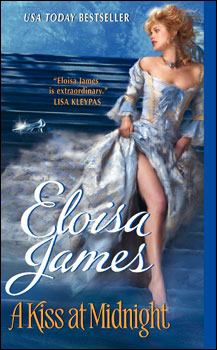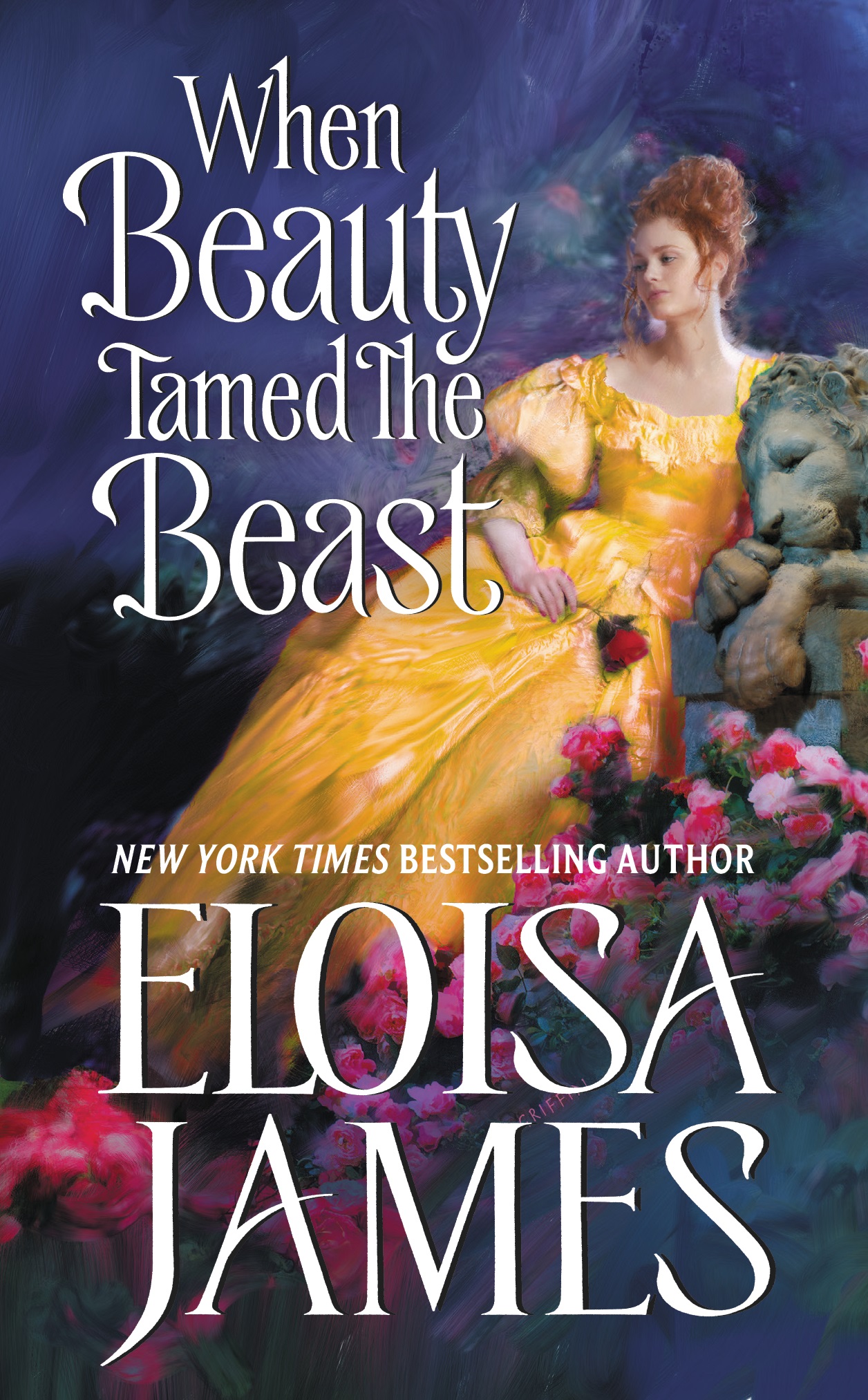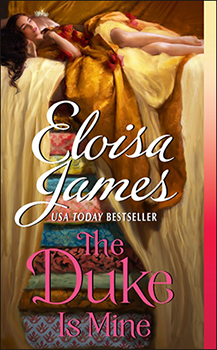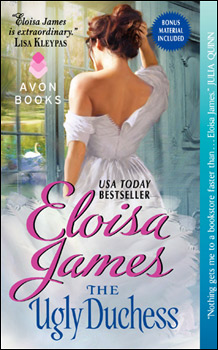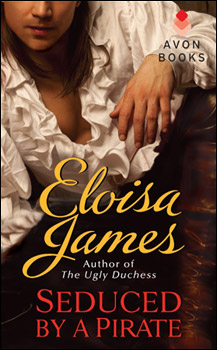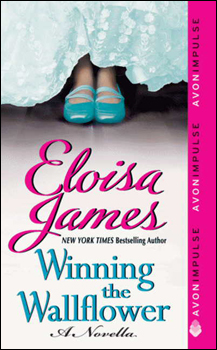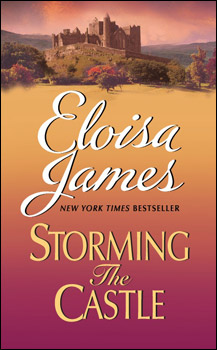Once Upon a Tower
Book 5 in the Fairy Tales Series
Once upon a time a duke fell in love
Gowan Stoughton of Craigievar, Duke of Kinross, values order and self-control above all else. So when he meets a lady as serene as she is beautiful, he promptly asks for her hand in marriage.
With a lady
Edie—whose passionate temperament is the opposite of serene—had such a high fever at her own debut ball that she didn’t notice anyone, not even the notoriously elusive Duke of Kinross. When her father accepts his offer… she panics.
And when their marriage night isn’t all it could be, she pretends.
In a tower.
But Edie’s inability to hide her feelings makes pretending impossible, and when their marriage implodes, she retreats to a tower—locking Gowan out.
Now Gowan faces his greatest challenge. Neither commands nor reason work with his spirited young bride. How can he convince her to give him the keys to the tower…
When she already has the keys to his heart?

Once Upon a Tower
Book Extras

Inside Once Upon a Tower
As a Shakespeare professor, I teach Romeo and Juliet every year — one would think the play held no mysteries for me. But I’d been plagued by the question of what Romeo and Juliet’s marriage would look like if their parents hadn’t been so grumpy.

Special Guests Make an Appearance in Once Upon a Tower
Julia Quinn’s characters appear in Once Upon a Tower and Edie and Gowan appear in Julia’s The Sum of All Kisses where Lady Edith may inadvertently bring about a Smythe-Smith catastrophe. Readers celebrated the character crossover with fun sharables all over social networks.
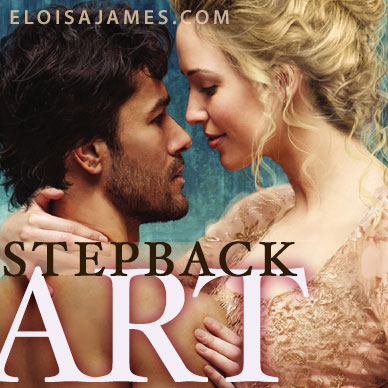
Stepback for Once Upon a Tower
Enjoy the stepback for Once Upon a Tower.

Eloisa Shares her Inspirations for Edie’s Music
Edie is a cellist, and throughout the novel, I mention many cello pieces. I’ve prepared a list of short videos so that you can experience Edie’s musical taste. Click through and enjoy!
Fairy Tales Collectible Card
Eloisa made up these gorgeous collectible cards for readers to celebrate her Fairy Tales. With Kate and Linnet on one side and Olivia, Theodora, and Edie on the other, this 5×7 can be yours. And this isn’t the only gorgeous card to be had!

Once Upon a Tower
Reviews
"Exquisitely written, insightful, hilarious and sometimes bawdy."
— Library Journal
"A splendidly sexy fairy-tale romance... a lyrically written love story... seasoned with the author's incandescent wit"
— Booklist (Starred review)
"Written with wit and an understanding of human emotions, Once Upon a Tower is riveting reading."
— Romance Reviews Today
"This was a perfect fairy-tale romance for me"
Once Upon a Tower
Enjoy an Excerpt
Jump to Ordering Options ↓
Listen to an Audio Excerpt ↓
Chapter One 
May 2, 1824
No. 20 Curzon Street, London
The Earl of Gilchrist’s town house
Whenever possible, Gowan Stoughton of Craigievar, Duke of Kinross, Chief of Clan MacAulay, avoided rooms crowded with Englishmen. They were all babbling gossips with more earwax than brains, as his father was wont to say.
Though Shakespeare had got there first.
Yet here he was, nonetheless, entering a ballroom in the heart of London, rather than casting a line into a Highland stream, as he would have preferred. It was a disagreeable but inescapable fact of life—or of his life, at any rate—that fishing for a bride had taken precedence over fishing for salmon.
The moment he was announced, a flock of young women swiveled toward him, each face flaunting a gleaming array of teeth. To his mind they all looked constipated, though more likely the smiles were an automatic response to his title. He was, after all, an unmarried nobleman in possession of all his limbs. Hair, too; he had more hair than most Englishmen. Not to mention a castle.
His hosts, the Earl of Gilchrist and Lady Gilchrist, were waiting at the bottom of the steps, so the young ladies did not instantly pounce. Gowan liked Gilchrist—he was stern but fair, and had a brooding gaze that was almost Scottish. They were both interested in financial affairs, unlike most gentlemen, and the earl was a damned fine investor. Because Gowan was a governor of the Bank of Scotland and Gilchrist held a similar post at the Bank of England, they’d exchanged a good deal of correspondence over the last couple of years, though they’d rarely met.
“Your Grace, may I introduce my countess?” Gilchrist asked, drawing his lady forward. To Gowan’s surprise, the countess was significantly younger than her husband, perhaps in her late twenties. What’s more, she had sensual, full lips, and her lush breasts were framed by a bodice made of a twist of rosy silk. By all appearances, she was one of those aristocratic women who emulated the attire and manner of an opera dancer.
Gilchrist, on the other hand, bought to mind nothing so much as a stern churchwarden. It could not be a harmonious pairing. A man and wife ought to be complementary in age and interests.
The countess was telling him about her stepdaughter, Edith, so Gowan bowed and expressed his ineffable pleasure at the idea of meeting the young lady.
Edith. What an awful name.
A long-tongued woman would have that name. A fusty nut, a flap-eared … Englishwoman.
Without warning, Lady Gilchrist slid her arm through his so he might accompany her to the adjacent reception chamber; he scarcely managed to suppress a flinch. In his youth, servants had always hovered around him, adjusting his clothing, touching his neck, wiping his mouth. But in the years since he turned fourteen, he had suffered no such familiarities unless absolutely required.
Because he had very little time alone, he preferred to maintain a barrier between himself and the world. He did not lament his lack of privacy; he felt it would be a waste of time to dress, for example, without simultaneously hearing his secretary’s report. If there was anything that Gowan hated, it was wasting time.
Time wasted itself, in his opinion. All too soon, and out of the blue, you toppled over and died, and all your moments were gone.
It would be rank foolishness to pretend that those moments were infinite and endless, which—in his opinion—was precisely what people were doing when they dawdled about in the bath or spent hours lazing about reading poetry. It was his inclination and his habit to do as many things at once as possible.
Indeed, this ball was a case in point: before he traveled to meet a group of bankers in Brighton on the morrow, he wanted to ask Gilchrist’s opinion about a knotty point regarding issuance of the one-pound note. Gilchrist was giving a ball, which young ladies would attend. Gowan had an acute—not desperate, but acute—need for a spouse.
Ergo, two birds with one stone. He preferred three or four birds with a single stone, but sometimes one had to settle for less.
The only problem was that the room was filled with English ladies, and he had determined that it would be a bad idea to marry one of those. It was true that a Scottish nobleman always had good reason to tie himself to one of the great houses of England.
But it was also true that an English lass was, perforce, English.
Theirs was an indolent race, as everyone knew. Their gentlewomen sat about doing naught but quaffing endless cups of tea and reading novels, while their Scottish counterparts to the north thought nothing of running an estate with a thousand sheep while raising four children.
His own grandmother had worked from morn to dusk without complaint. If reading was to be done, she had always said it should be for improvement of the mind. The Bible and Shakespeare, with Montaigne’s essays for light reading. His late fiancée was, by all accounts, cast in the same mold, which made sense given that his grandmother had arranged the marriage herself. Miss Rosaline Partridge had died from a fever she caught while paying visits to the poor … virtue, in her case, proving less than rewarding.
Gowan rather thought diligence was his primary requirement in a bride (other than the obvious—that she be beautiful, maidenly, and well-bred). The future Duchess of Kinross could not be a time waster.
Lady Gilchrist had towed him through the ballroom, and they now entered a smaller chamber. A quick reconnaissance of the room told him that in matters of wealth or title, no unmarried man present matched him. In any case, there were likely only three contenders in all London.
So, strictly speaking, he needn’t waste time courting a wife once he’d chosen her. Marriage was a market like any other; when he found the right lady, he would simply outbid his rivals.
The countess drew him to one side of the chamber and stopped before a young woman, whom she introduced as her stepdaughter.
It was the sort of moment that cleaves past from present, and changes the future forever.
Lady Edith did not belong in an overheated English ballroom. There was something otherworldly about her, as if she were dreaming of her home under a fairy hill. Her eyes were green pools, as deep and dark as a loch on a stormy day.
She was delightfully curved, and had hair that gleamed like the golden apples of the sun. It was pulled up in ringlets and curls, and all he wanted was to unwind it and make love to her on a bed of heather.
But it was her eyes that truly beguiled him: they met his with courteous disinterest, a dreamy peacefulness that showed none of the feverish enthusiasm with which unmarried young ladies generally regarded him.
Gowan did not consider himself a man given to carnality. A duke, to his mind, had no right to succumb to lust.
He had watched with bemusement as men of his acquaintance fell at the feet of women with saucy smiles and round bottoms. He had felt pity, as he did now for the earl with his lush wife.
But in the moment, looking down at Lady Edith, love and its attendant poetry made sense. A line came to him as if it had been written for that moment: I never saw true beauty till this night…
Perhaps Shakespeare was useful for something after all.
Lady Edith’s rosy mouth curved into a smile. She dropped into a deep curtsy, inclining her head. “Your Grace, it is a pleasure to meet you.”
To Gowan, it was as if the countess had ceased to exist; indeed, a roomful of people faded into the wallpaper. “The pleasure is entirely mine,” he said, meaning every word. “May I have the honor of your hand for this dance?” He extended his hand.
His gesture was met not by rippling eagerness, but by a composure that drew him as surely as eagerness would have repelled him. He wanted nothing more than to make those serene eyes light for him, to see admiration, even adoration, in her gaze.
She inclined her head again, and took his hand. Her touch burned through their gloves, as if it warmed some part of him that had been cold until this moment. Rather than flinch, he had the impulse to pull her closer.
Once in the ballroom and in his arms, Edith danced as gracefully as the wave of the sea. And she was quiet.
The dance kept separating them and bringing them back together; they had progressed to the far end of the set before it dawned on Gowan that they had yet to exchange a word. He couldn’t remember the last person who’d been so silent in his presence, yet she seemed to feel no need—nor inclination—to speak to him. Still, it was the most comfortable silence of his life.
He was aware of a feeling of profound surprise.
They turned and began to proceed up the room again. He tried to think of something to say, but nothing came to mind. He had mastered the art of polite conversation; a whole drawing room full of people unsettled by his ducal presence could be put at ease with a few of his well-chosen words.
But in his experience, young ladies did not need prompting. Generally, they smiled feverishly, their eyes sending sparkling messages while inanities tumbled from their lips.
Gowan was no fool. He recognized that life had just presented him with a fait accompli. Everything about Edith was exquisite: her easy silence; her serenity; her enchanting face; the way she danced, as if her toes scarcely touched the ground.
She would make a perfect Duchess of Kinross. Already he could envision the portraits he would commission: one of the duchess alone, and, later, another of the four of them—or five; he would leave the number of children to her—to hang over the mantelpiece in the great drawing room.
The dance ended, and the strains of a waltz began.
Lady Edith curtsied before him.
“Will you dance with me again?” His voice tumbled out absent its usual measured tones.
She looked up at him and spoke for the first time since they’d begun dancing. “I’m afraid that this dance is promised to Lord Beckwith—”
“No,” he stated, though he’d never done such an impolite thing in this life.
“No?” Her eyes widened slightly.
“Waltz with me.”
He held out his hand. She paused very briefly, and then once again put her hand into his. Carefully, as if he were taming a bird, he placed his other hand on her waist.
Who would have thought that all the romantic tripe about being burned by a lover’s touch was true?
As they danced, Gowan was vaguely aware that the entire assembly was watching them. The Duke of Kinross was dancing twice in a row with Gilchrist’s daughter. The news would be all over London by morning.
He didn’t care. His heart was thudding in time with the music as he studied her minutely, feature by feature. She was utterly delicious. Her lips held a natural curve, as if she had a kiss or a smile in reserve, one that she had never given away.
Her feet and his moved in perfect harmony with the music. Gowan had never danced better in his life. They swept through the waltz like sparks thrown from a fire, neither uttering a word.
It occurred to him that words weren’t necessary. They were speaking through the dance itself.
Another thought came to him: he had never realized that he was lonely. Not until now.
As the final strains of the waltz died, he bowed to his dancing partner, and straightened again to find Lord Beckwith just there, waiting.
“Duke,” Beckwith said, a distinct chill in his voice. “I believe you mistook my dance for yours.” He jutted his elbow toward Lady Edith with the air of a man ill-used.
She turned to Gowan with a polite smile of farewell, and slipped her hand through Beckwith’s arm.
Gowan burned with impatience. He was a Scot: he didn’t trade in that sort of politeness, not between a man and a woman. He wanted to show her what he felt, snatch her behind a pillar, wind her in his arms, and kiss her. Roughly. No, tenderly.
But she wasn’t his wife … yet. Until she was, he had to follow the rules. He watched his future wife move into the next dance on the viscount’s arm.
Gowan was wealthier than Beckwith. And he was better-looking than the viscount. Unless Edith preferred slender, twig-like men. He couldn’t honestly say that she had looked at him with desire.
But of course, one wouldn’t want a flagrantly lustful wife. His grandfather had met his grandmother at a formal dinner and had known instantly that she would be the next duchess, even though she had been only fifteen at the time, and shy for her age. One certainly didn’t want one’s future—let alone one’s current—duchess to crave strange men.
Gowan decided he would return in the morning to pay a call. That was part of the courtship rituals in England: visit the house of the intended three or four times, take her for a drive, and then ask the father for his daughter’s hand.
Once that was settled in his mind, he searched out the earl and broached the subject of pound notes. Their work concluded, Gowan said, “I’ll stop by on the morrow to pay a call on your daughter before I continue on to Brighton to discuss our conclusions with Pomfrey’s Bank.”
He saw approval in the earl’s eyes. Obviously the man had invited him to this ball for reasons that had nothing to do with whether the government reimbursed its banknotes with gold sovereigns.
Gowan did not dance with any other women that night. He had no inclination to, and he certainly didn’t want to lounge at the side of the room and watch Edith dance with other men. The very thought made his jaw clench.
Jealousy was the downfall of his countrymen. It was the dark side of their greatest virtue—loyalty. A Scotsman is loyal until death; unlike fickle English husbands, he would never turn from his chosen bride to seek other beds.
Still, Gowan knew he was a damned possessive bastard, who put loyalty above all else. It would eat him alive to watch Edith moving from man to man before he had a ring on her finger that told the world she was his.
Though his imprint on her heart would be even better.
It would be a waste of time to stand about snarling at Edith’s suitors, and Gowan was not a time waster. Instead, he went home and composed a message to his London solicitor, Jelves. In it, he noted that he planned to marry in the near future, and directed Jelves to draw up a suggested settlement and bring it to his door in the early morning.
The task would probably keep the man up all night; Gowan made a mental note to send him a bonus.
He rose at dawn and spent several hours working. A night’s sleep hadn’t changed his mind about Lady Edith—not that he could recall ever changing his mind about something important, once he’d made it up. When a haggard-looking Jelves arrived, he gave a concentrated hour to the question of marital settlements. He and the solicitor drew up a document that Jelves somewhat nervously suggested might be overly generous.
“Lady Edith will be my duchess,” Gowan told him, aware his eyes had gone wintry. “She will be my better half. Why would I stint what she will inherit after my death, or enjoy during my life? We Scots don’t treat our women with the disrespect you do in this country. Even if she and I have naught but a single daughter, that daughter will inherit the majority of my estate.”
He must have come close to baring his teeth, because Jelves swallowed and bobbed his head.
By now Gowan was tardy, damn it. He had to be on the coach road out of London in a matter of two hours at the very most, since a table full of bankers would be waiting for him in Brighton. Instructing his retinue to follow in a second coach, he directed his coachman to return to Gilchrist’s house in Curzon Street.
The Gilchrists’ butler took his cloak, informed him that the countess and Lady Edith would shortly join their guests, and opened the door to a large and gracious drawing room that—at present—resembled nothing so much as a gentlemen’s club.
Men were everywhere, posies and bouquets by their side, laughing amongst themselves. Incredibly, a discreet game of piquet was going on in one corner. He recognized only the half of them. Beckwith was there, decked out in an orange coat with garish buttons. Lord Pimrose-Finsbury was there as well. Pimrose-Finsbury held only a life title, but he owned a good share of Marylebone. He clutched a delicate little violet nosegay.
Gowan felt a prick of chagrin; it hadn’t occurred to him to send someone to Covent Garden to procure roses or something of that nature.
“If you would join the morning callers, Your Grace,” the butler said, “I will serve refreshments very shortly.”
Instead, Gowan turned on his heel and strode back to the entry.
“Would Your Grace prefer to leave a card?” the butler asked, following him.
“I would prefer to speak to Lord Gilchrist. When did Lady Edith debut?” he asked bluntly.
The butler’s eyebrow twitched, but he controlled himself. “Last night,” he said. “Last night was her first appearance in society.”
Gowan wasn’t the only man who had taken one look at Edith and pictured her by his side.
But he now knew precisely why Gilchrist had asked him to attend his ball: the invitation had included the gift of his daughter’s hand. There would be no further competition if he chose to take up the earl’s silent offer.
“I should like to speak to His Lordship, if he is free.” He did not ask. Gowan never asked; he stated. It made no difference, because he always got what he wanted. And there was something undignified about asking.
Dukes, in his opinion, did not ask.
They stated.
He had a feeling that there would be no asking with regard to Lady Edith’s hand, either.
end of excerpt
Once Upon a Tower
by Eloisa James
is available in the following formats:

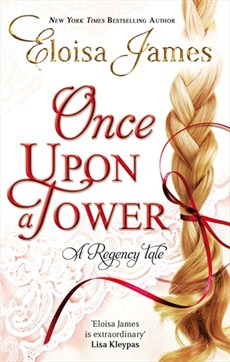
UK Print:
→ As an Amazon Associate I earn from qualifying purchases. I also may use affiliate links elsewhere in my site.




